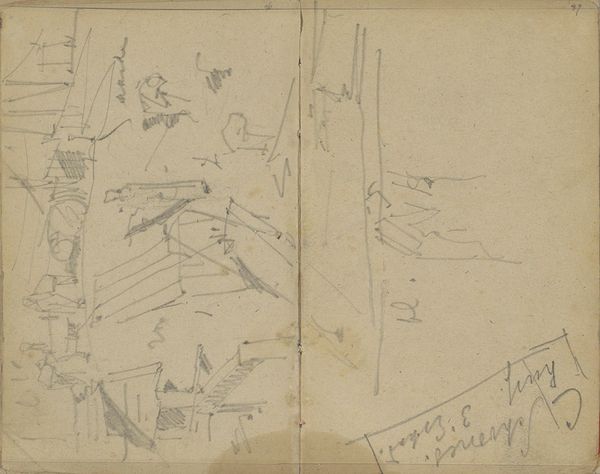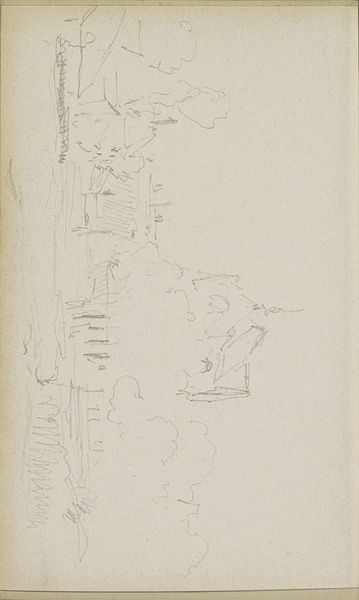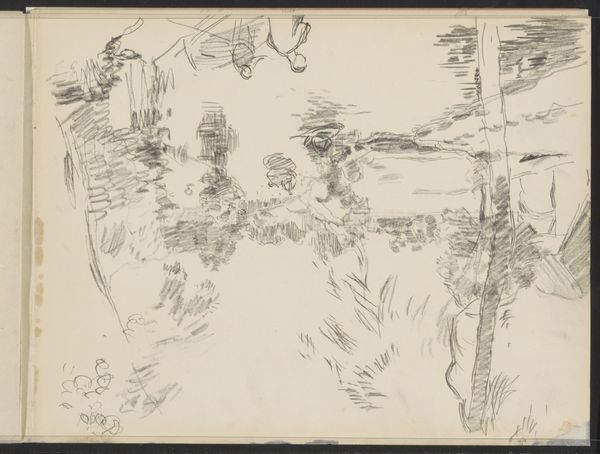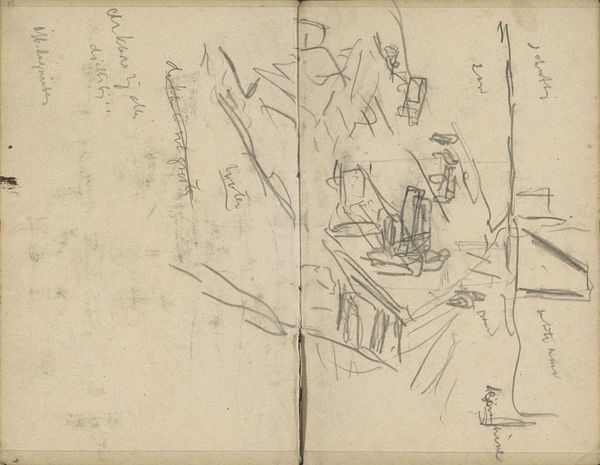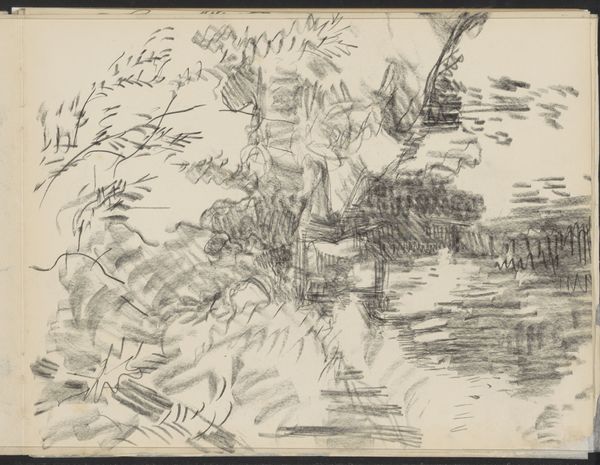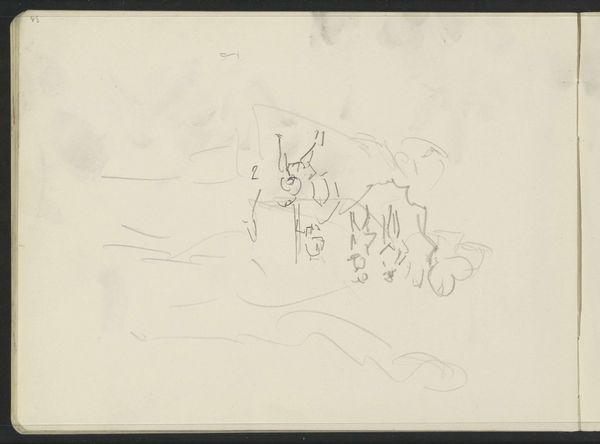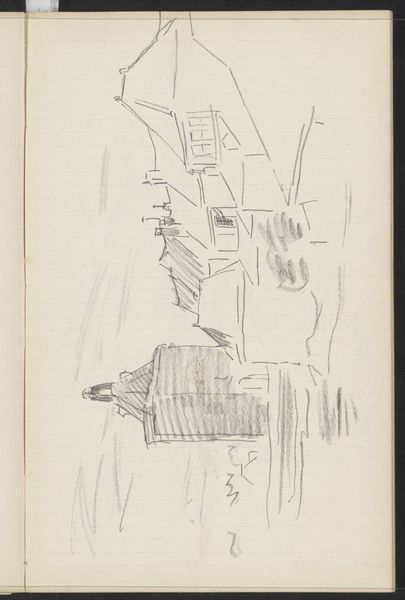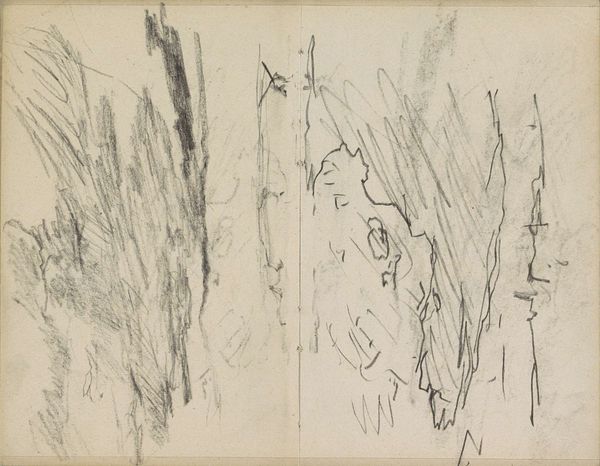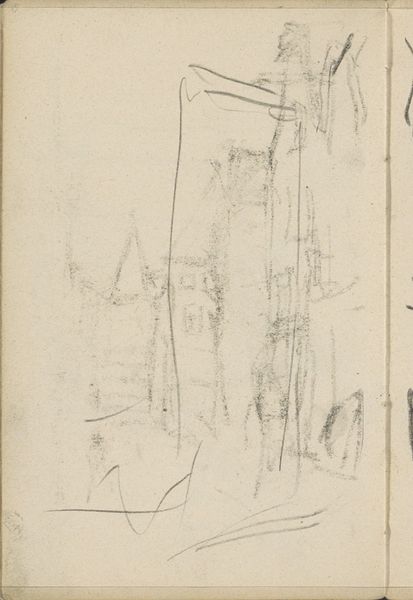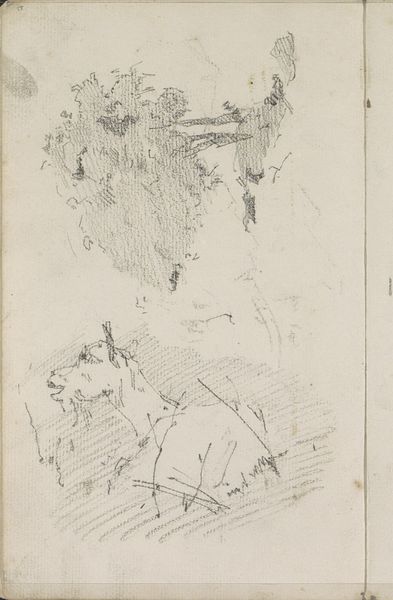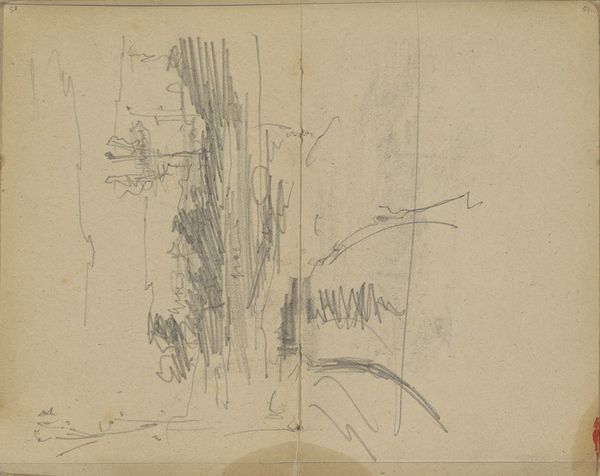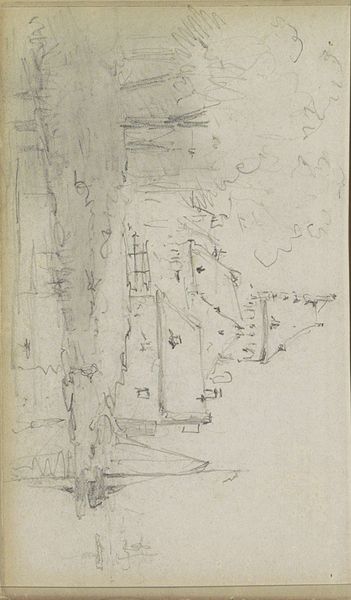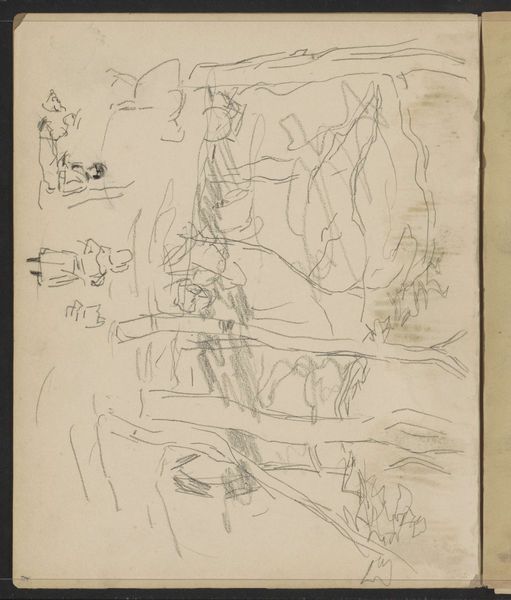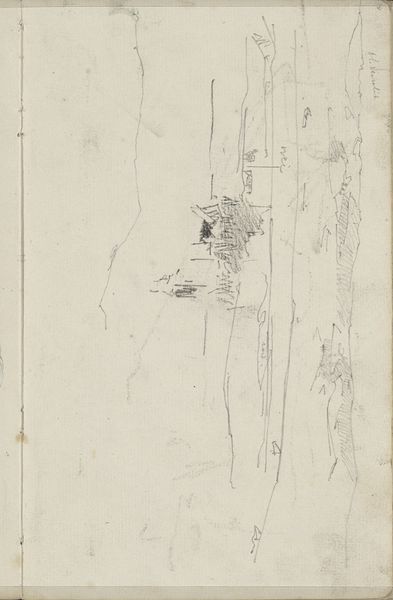
Copyright: Rijks Museum: Open Domain
Curator: The artwork before us, originating from the Jan Veth archive and now residing in the Rijksmuseum, is entitled "Tekening uit archief Jan Veth." Its creation is placed sometime between 1865 and 1927, crafted using pencil in a style reminiscent of Impressionism, signed by August Allebé. Editor: It’s faint, like a fleeting memory. I’m immediately drawn to the inscribed words, floating amidst the landscape elements. They seem almost dreamlike. What do you see? Curator: Well, sketches such as these served as both preliminary studies and private documents. Artists like Allebé relied on quick pencil drawings to capture fleeting impressions. What may look simple reveals the inner workings of an artist engaged with a particular setting or motif. Editor: Absolutely. I notice inscriptions such as “bouquet of wildflowers” or "ears of corn", acting almost as annotations, binding together natural imagery and literary form, connecting them through the eye and hand of the artist. Are those gateposts I see near the flower annotation? Curator: Yes, I believe you are right. It appears to show an overgrown scene, part wild, part cultivated. These visual symbols give us a sense of longing for a time and place—perhaps a remembered countryside, increasingly fading as industrial society advanced. Editor: So this connects to anxieties about a loss of innocence and rural simplicity…a romanticized vision of nature? It speaks to the soul. Curator: Exactly! This type of work becomes, in a sense, political. An artist grappling with his present through impressions of past ideals. The inscriptions are really the key: they frame this moment of aesthetic searching within the larger social sphere of that time. Editor: In many ways, a pencil sketch is more than just preparation; it serves to give raw immediacy to complex emotions and cultural longings, like nostalgia for an imagined rural past. Curator: I agree. August Allebé offers more than an aesthetic observation here. The work reminds us to read our emotional lives against a backdrop of historical and cultural shifts.
Comments
No comments
Be the first to comment and join the conversation on the ultimate creative platform.
